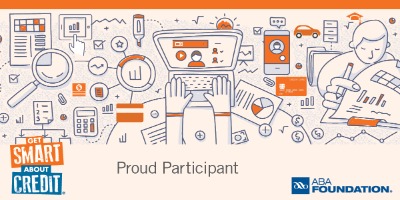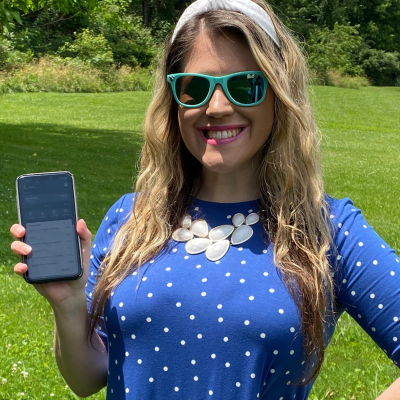
It might be spooky season, but that doesn’t mean your finances should scare you. As an effort to promote healthy financial habits for youth, Ohio Valley Bank is once again participating in the American Banker’s Association’s (ABA) Get Smart About Credit Campaign.
While today is Get Smart About Credit Day, we are celebrating the annual initiative throughout the fall season. From now through Nov. 28, check out the bank’s official Facebook and Twitter for helpful credit tips you can share with your children and family. We will also be sharing information on how to protect yourself from identity theft as well as helpful advice when it comes to paying for college.
“Get Smart About Credit gives us an opportunity to equip the young adults in our community with the financial knowledge they need to prepare for the unexpected and ultimately be successful,” OVB Communications Specialist Hope Roush said. “We look forward to sharing a range of helpful resources and once again participating in this important campaign.”
Credit lessons also are integrated into the bank’s financial education initiatives, which includes the OVB BANKit program geared toward the high school grade level. OVB’s Adventures in Credit program, which is a one-time presentation designed for the elementary grade level, also takes students on an interactive journey as they learn about the importance of credit. In addition, the OVB Virtual Classroom contains interactive credit lessons that you can watch with your children from the comfort of home.
In the spirit of Get Smart About Credit, here are seven tips to help youth shape their financial future that you can share with your kids:
- You are in charge. It’s your job to manage your money. Set yourself up for success by creating a realistic budget and sticking to it.
- Watch your spending. It all comes back to the simple lesson of needs vs. wants. Pace spending and increase saving by cutting unnecessary expenses like eating out or shopping so that your money can last throughout the school year.
- Use credit wisely. Understand the responsibilities and benefits of credit. How you handle your credit in college could affect you well after graduation. Shop around for a card that best suits your needs. Pay as much as you can, as soon as you can, and always pay by the due date.
- Utilize your bank services. Banks are more than money in a vault. They offer valuable services that students can benefit from like check cashing, debit cards, mobile and online banking, balance alerts, personal loans, direct deposit, financial education and some offer identity theft protection.
- Be cautious when it comes to money. Don't just trust anyone with your money. Be skeptical of classmates, friends or salespeople that have ideas for your money.
- Save, save, save! Things happen, and it's important that you are financially prepared when your car or computer breaks down or any one of life’s unexpected emergencies. No matter how small the amount you should start putting some money away immediately.
- Ask. This is a learning experience, so if you need help, ask. Your parents or your banker are a good place to start and remember the sooner the better.


